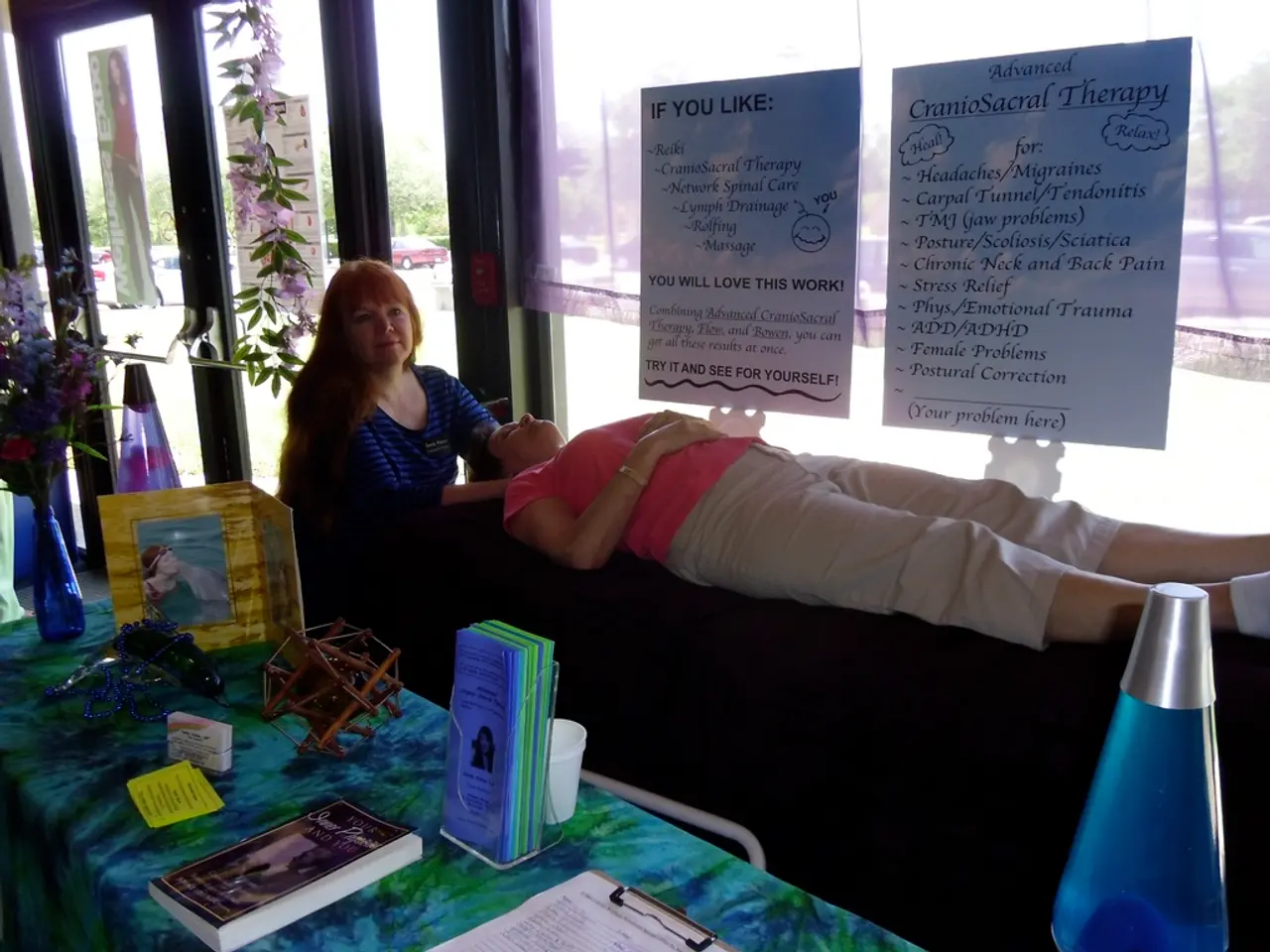Mental Health: Identifying Depression, Its Treatment Options, and Further Insights
Depression is a common mental health condition that can cause ongoing feelings of sadness or despair. This condition affects people of all ages and backgrounds, and there is no single cause for it. Risk factors may include genetics, trauma, medical conditions, life changes, alcohol or drug misuse, and early childhood trauma.
Major Depressive Disorder (MDD)
Characterized by severe symptoms such as persistent sadness, loss of interest or pleasure (anhedonia), changes in appetite and sleep, low energy, and impaired daily functioning lasting for at least two weeks. Episodes can happen once or recur multiple times. Subtypes include Seasonal Affective Disorder (SAD) and Atypical Depression.
Seasonal Affective Disorder (SAD)
Depressive episodes occur seasonally, usually in fall or winter with symptoms like increased sleep and weight gain. Treatment often involves bright light therapy.
Atypical Depression
Features mood reactivity, increased appetite, hypersomnia, heavy limbs ("leaden paralysis"), and sensitivity to rejection.
Persistent Depressive Disorder (Dysthymia)
A chronic form of depression where symptoms last for two or more years, often with less severe but longer-lasting depression than MDD. There can be intermittent episodes of major depression within this period.
Bipolar Disorder
Characterized by alternating episodes of depression and mania (abnormally elevated mood) or hypomania (milder form of mania). There are different categories: Bipolar I, Bipolar II, and Cyclothymic Disorder.
Bipolar I
At least one manic episode plus major depressive episodes.
Bipolar II
Hypomanic episodes with more frequent, longer depressive episodes; often misdiagnosed as unipolar depression.
Cyclothymic Disorder
Frequent hypomanic symptoms alternating with brief periods of depression, but symptoms do not fulfill full criteria of mania or major depression.
Postpartum Depression
Occurs in women after childbirth. Symptoms include anxiety, sadness, hopelessness, and lack of interest in caring for the infant. It is more severe and longer lasting than the common “baby blues”.
Psychotic Depression
Severe depression accompanied by psychosis such as delusions, hallucinations, or paranoia, often requiring specialized treatment.
Key symptoms across these types often include sadness, anhedonia, changes in appetite and sleep, fatigue, irritability, and sometimes psychotic features or mania depending on the type.
If you believe you may be experiencing depression, it is essential to speak with a healthcare professional for further guidance and support. A variety of medical professionals, including doctors, psychologists, and psychiatrists, can diagnose depression.
In certain cases, a doctor may prescribe antidepressants to treat depression, such as fluoxetine, escitalopram, sertraline, or citalopram. Psychotherapy is also a common treatment for depression, and a therapist can provide advice and strategies for handling symptoms.
The Substance Abuse and Mental Health Services Administration offers an anonymous treatment services locator on its website for those seeking mental health services. It is crucial to discuss all symptoms openly during a doctor's visit for an accurate diagnosis.
Remember, it can be difficult to discuss depression, but open communication with your healthcare provider is vital for proper diagnosis and treatment. Seeking help is a courageous step towards recovery.
Psychiatry plays a significant role in diagnosing and treating depression, as it's a mental health condition that affects the health and wellness of millions globally. Mental health professionals like psychologists and psychiatrists can help patients cope with depression by providing guidance, support, and treatments such as psychotherapy.
Depression can manifest differently for various individuals, with major depressive disorder, seasonal affective disorder, atypical depression, persistent depressive disorder, bipolar disorder, postpartum depression, and psychotic depression being some recognised types.
The science behind depression is still evolving, and researchers continue to study its causes and potential root factors, which may include genetics, trauma, medical conditions, life changes, alcohol or drug misuse, and early childhood trauma.
If you suspect you might be suffering from depression, it's crucial to consult with healthcare professionals for an accurate diagnosis and help finding the most appropriate treatment plan.




